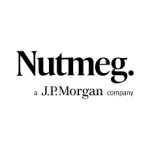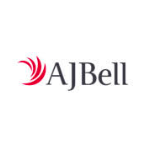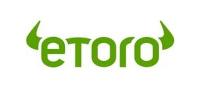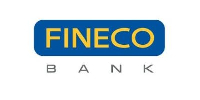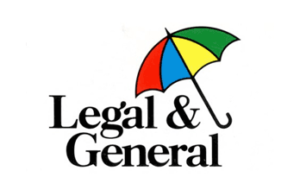How To Invest In The FTSE 100 – 5 Top Picks
5 ideas for investing in the FTSE 100
We have outlined 5 FTSE 100 linked investment options for you to consider:
- 3 ETF Funds
- 1 Unit Trust Fund
- 1 Structured investment product
⇒Consider An Exchange Traded Fund (ETF)
What is a FTSE 100 ETF fund?
An ETF is a passive investment (there is no active fund manager involved) and you are typically buying a basket of equities that trade on an exchange.
With ETFs prices move up and down all day as they are bought and sold. The basket of equities can include a range of investments including bonds, commodities and international holdings. Typically ETFs are low cost.
A FTSE 100 exchange traded fund (ETF) will track the FTSE 100 Index which makes up the 100 largest firms on the London stock exchange by capitalisation.
3 FTSE 100 ETF Fund To Consider:
1. iShares Core FTSE 100 UCITS ETF
The second most popular FTSE 100 ETF fund bought by investors according to Interactive Investor in December 2020 was the iShares Core FTSE 100 ETF.
Launched in 2000 this index tracker fund which replicates the FTSE 100 has a super low ongoing charge of 0.07%.
Managed by BlackRock this is a large fund with over £8 billion invested.
iShares run two versions of the fund:
- Accumulated Fund (stock code: CUKX) where dividends are accumulated.
- Distribution Fund (stock code: ISF) where dividends are paid out. Dividend income is paid quarterly (Income yield as at 2/12/2020 was 3.53%). If the fund is held in an ISA this income is not subject to income tax*.
2. Vanguard FTSE 100 UCITS ETF
According to Interactive Investor the Vanguard FTSE 100 ETF was the 4th most popular ETF fund purchased through its platform in December 2020.
Launched in 2012 this index tracker fund replicates the FTSE 100 Index and has a super low ongoing charge of 0.09%.
Managed by Vanguard the fund has £2.6 billion invested at the time of writing.
Vanguard run two versions of the fund:
- Accumulated Fund (stock code: VUKG) where dividends are accumulated.
- Distribution Fund (stock code: VUKE) where dividends are paid out. Dividend income is paid quarterly (Income yield as at 2/12/2020 was 3.92%). If the fund is held in an ISA this income is not subject to income tax*.
3. HSBC ETFS PLC FTSE 100 UCITS ETF
Launched in 2009 this index tracker fund replicates the FTSE 100 Index and has a super low ongoing charge of 0.07%.
Managed by HSBC Global Asset Management the fund has £289 million invested at the time of writing.
HSBC run one version of the fund:
- Distribution Fund (stock code: HUKX) where dividends are paid out. Dividend income is paid bi-annually (Income yield as at 31/10/2020 was 4.72%). If the fund is held in an ISA this income is not subject to income tax*.
How To Buy A FTSE 100 ETF Fund
- Select a share platform – See below our 3 top platform picks
- Open your share account – To do this you will need your bank details and national insurance number
- Fund your account – You will need to fund your a/c with a debit or credit card or bank transfer
- Search for the ETF using the stock code – Type in the stock code into the search box
- Check out the latest info and price for the selected ETF – Some platforms offer free research and analysis
- Buy the ETF – Nice and easy!
Our view: The next generation of online trading platform means you can buy ETF funds in as little as 10 minutes! See our 3 top picks for buying ETFs below:
Buy the FTSE 100 via an ETF Fund
Capital is at risk.
- 0% commission on stocks
- Free account
- Inactivity fee after 12 months
Buy the FTSE 100 via an ETF Fund
Capital is at risk.
- 1 free trade per month
- Fixed fee platform – £9.99 pm
- No inactivity fees
Buy the FTSE 100 via an ETF Fund
Capital is at risk.
- £2.95 per trade
- Low cost platform
- No inactivity fees
⇒Consider a Unit Trust Fund
What is a FTSE 100 unit trust fund?
A unit trust is a collective investment fund formed under a trust deed where investors pool their money which is then managed by a fund manager with set investment objectives. When you buy into a fund you buy units which reflect the net asset value of the investments held. The more investors who invest the more units that are created.
With a unit trust their is typically a bid offer speads between the buying and selling price of the fund. An investor will pay more to buy into a fund than what they will get if they sell. This price gap will vary and the different goes to the fund manager as a fee.
A FTSE 100 unit trust fund replicates the companies held in the index.
FTSE 100 Unit Trust Fund To Consider:
4. Legal & General UK 100 Index Trust R-Class (GBP)
L&G have a long pedigree managing index tracker funds launching a series of FTSE 100 tracker funds in 1993 including this one.
The unit trust index tracker has a ongoing charge of 0.48%.
Managed by L&G the fund has over £1 billion invested at the time of writing.
L&G run two versions of the fund:
Accumulated Fund (Sedol: BOCNH72) where dividends are accumulated.
Distribution Fund (Sedol: BOCNH61) where dividends are paid out. Dividend income is paid quarterly (Historical income yield as at 31/10/2020 was 4.70%). If the fund is held in an ISA this income is not subject to income tax*.
All of the funds featured above can be put in an ISA, junior ISA or Self Invested Pension (SIPP) or as a direct investment.
Buy the L&G UK 100 Index Trust In An ISA
Capital is at risk.
- Invest from £20 pm
- No platform fees
- Large range of index tracker funds
- Invest up to £20,000 tax free for 2020-21
Consider Structured Investment Products
“Looking for exposure to the FTSE 100 but want some protection against a falling market?”
What is a FTSE 100 structured investment product?
Structured investment products are designed to meet the requirements of different investors as either a complement or alternative to traditional direct equity or fund investment.
Plans are designed taking into account investment risk versus investment return, protection and timescales.
Structured investment products are typically equity linked e.g. linked to the FTSE 100, and provide exposure to market risk but often with protection built in so restricting the upside but also mitigating the downside.
This balance of risk is attractive particularly in uncertain markets.
Plans are backed by major financial institutions who provide the assets for the plan (known as the counterparty). Investment returns from investment plans often fall under CGT tax rules which can be attractive particularly to higher rate tax payers.
5. MB Growth Kick Out Plan
Do you think the FTSE 100 Index could rise by 5% or more in the coming years?
If you do, and you’re looking for high growth returns along with some capital protection against a falling market, this plan from MB Structured Investments could be worth a closer look.
This structured investment product measures the FTSE 100 index at the start of the plan and then again at the end of each yearly anniversary. If the FTSE has risen by at least 5% on any of these dates, the plan comes to an end and you receive 8.2% for each year invested (not compounded), along with a return of your original investment. That’s a potential 8.2% at the end of the first year, 16.4% after 2 years, 24.6% after 3 years, etc.
If the value of the Index is below the required level at the end of each year for the full six year term, no investment growth is paid, and the return of your initial capital is conditional on the Index not falling by more than 35% at the end of the term. If it does, your capital will be reduced by 1% for each 1% fall, so your capital is at risk.
Important Information: This is a structured investment plan which is not capital protected and is not covered by the Financial Services Compensation Scheme (FSCS) for default alone. There is a risk of losing some or all of your initial investment due to the performance of the underlying investment. There is also a risk that the company backing the plan known as the Counterparty may be unable to repay your initial investment and any returns stated.
Important Risk Information:
This website contains information only and does not constitute advice or a personal recommendation in any way whatsoever. The value of investments and income from them can fall as well as rise and you may not get back the full amount invested. The tax efficiency of ISAs is based on current tax law and there is no guarantee that tax rules will stay the same in the future.
Different types of investment carry different levels of risk and may not be suitable for all investors. Prior to making any decision to invest, you should ensure that you are familiar with the risks associated with a particular investment and should read the product literature. If you are in any doubt as to the suitability of a particular investment, both in respect of its objectives and its risk profile, you should seek independent financial advice.
Tags


